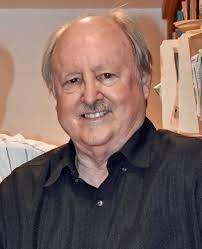Kellner, Douglas

Bio: (1943-) American sociologist. Douglas Kellner teaches at the University of California, Los Angeles. In his theoretical works, he combines the theory of postmodernism, critical theory (Frankfurt School), and the approach to cultural studies (Birmingham School). He studies the relationship between politics, media, and cultural history, and is an advocate of alter-globalization. His studies of mass media, art, and literature are focused on issues of alienation, domination, commodification, and dehumanization in modern society.
In his book Media Culture (1995), Kellner explores how film influences the construction of ideology and identity, especially concerning issues of race, ethnicity, and sexuality. The products of media culture like radio, television, film, and others produce materials that shape people’s identities, worldview, values and the sense of self. Media creates symbols, myths, and resources that create common culture and and the way for individual to become part of it. Media legitimize political power of the elites and indoctrinate powerless to accept their place and oppression. Media serve as a form of pedagogy that shapes how people feel, think, behave, what they desire and what they fear. Understanding this vast influence of media, what Kellner calls „critical media literacy“, can give people resources to rest media manipulations and empower them to control their cultural environment.
Kellner also analyzed the tragic events of the war in Iraq in 1991 and the terrorist attack on the United States in September 2001, in the context of the media spectacle that these events caused.
Fields of research
Art Crisis Culture Democracy Domination Ethnicity Globalization Identity Ideology Media Modernity and Modernization Politics Postmodernism Race Sex Terrorism WarTheoretical approaches
Critical Theory (Frankfurt School) Cultural Studies (Critical Pedagogy) Postmodern TheoryMain works
Camera Politica: The Politics and Ideology of Contemporary Hollywood Film (1988);
Critical Theory, Marxism, and Modernity (1989);
Jean Baudrillard: From Marxism to Postmodernism and Beyond (1989);
Television and the Crisis of Democracy (1990);
Postmodern Theory: Critical Interrogations (1991);
The Persian Gulf TV War (1992);
Media Culture (1995);
The Postmodern Turn (1997);
Grand Theft 2000: Media Spectacle and the Theft of an Election (2001);
The Postmodern Adventure: Science, Technology, and Cultural Studies at the Third Millennium (2001);
From September 11 to Terror War: The Dangers of the Bush Legacy (2003);
Guys and Guns Amok (2008);
American Nightmare Donald Trump, Media Spectacle, and Authoritarian Populism (2016);
American Horror Show: Election 2016 and the Ascent of Donald J. Trump (2017).

